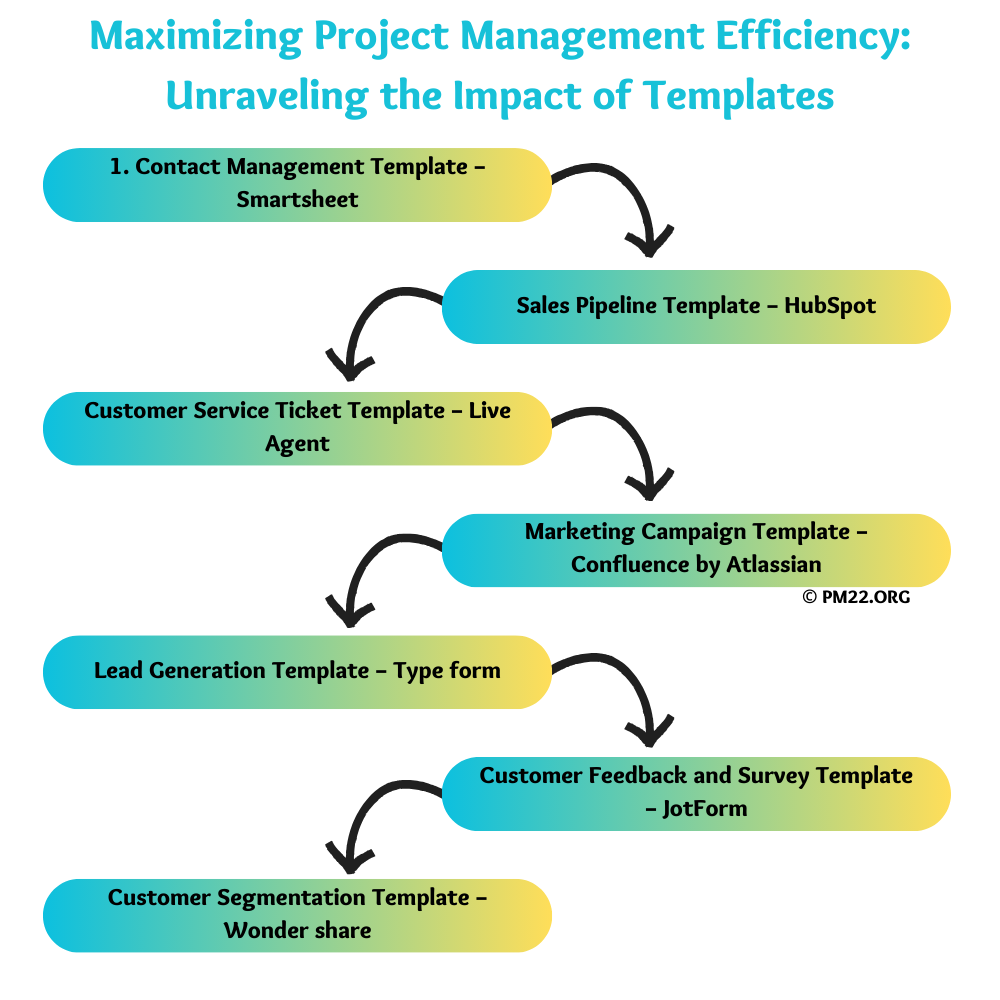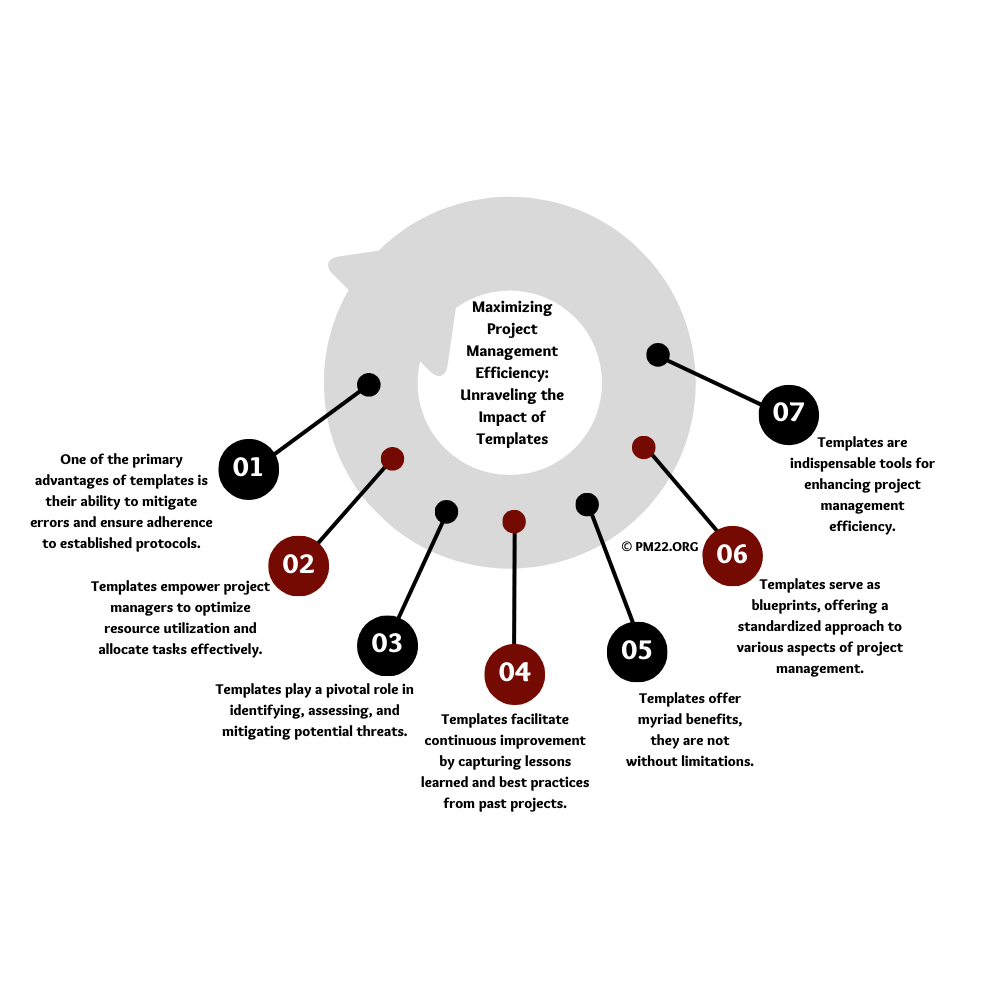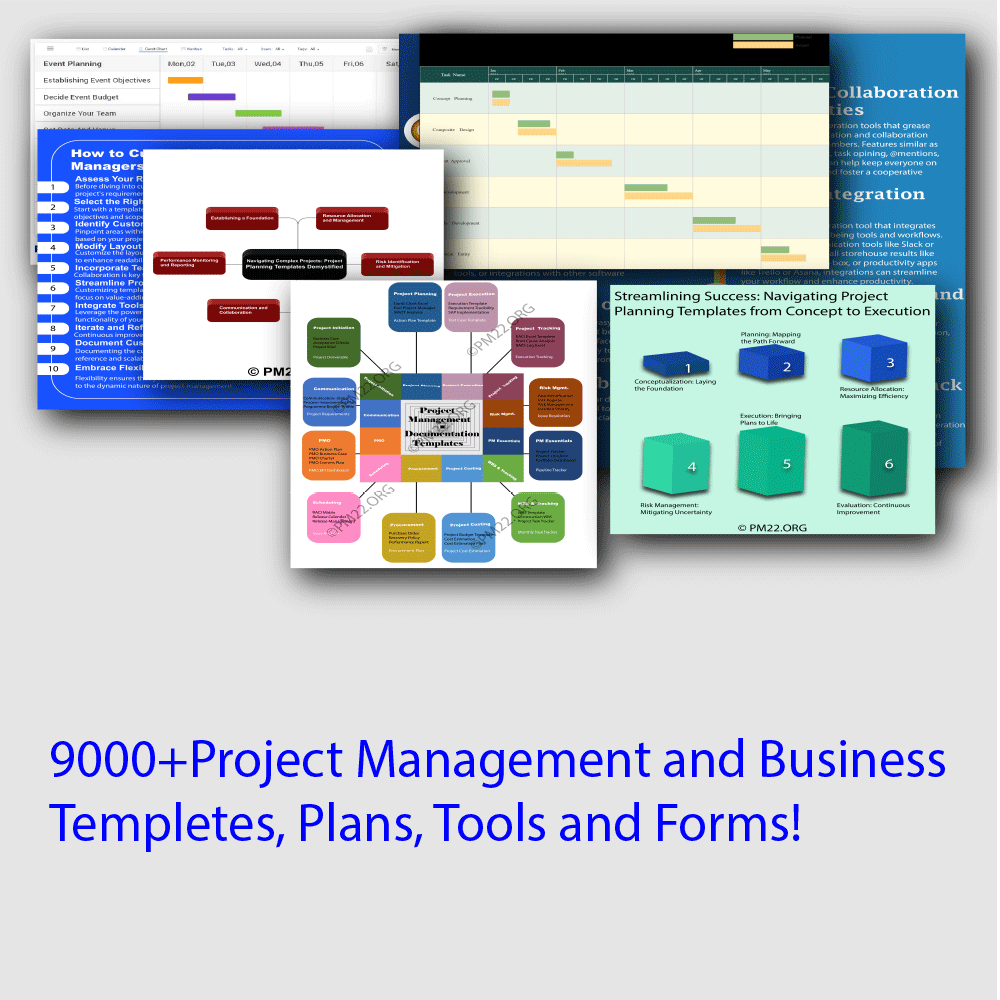 In the realm of project management, efficiency is the cornerstone of success. The ability to streamline processes, minimize errors, and enhance productivity is pivotal in delivering projects on time and within budget. Amidst the myriad of tools and techniques available, templates stand out as a potent catalyst for efficiency enhancement. From Gantt charts to risk registers, templates provide a structured framework that empowers project managers to navigate complexities with finesse. Let’s delve into the profound impact of templates on project management efficiency.
In the realm of project management, efficiency is the cornerstone of success. The ability to streamline processes, minimize errors, and enhance productivity is pivotal in delivering projects on time and within budget. Amidst the myriad of tools and techniques available, templates stand out as a potent catalyst for efficiency enhancement. From Gantt charts to risk registers, templates provide a structured framework that empowers project managers to navigate complexities with finesse. Let’s delve into the profound impact of templates on project management efficiency.
CLICK HERE TO DOWNLOAD 300+ PROJECT MANAGEMENT TEMPLATES & DOCUMENTS IN EXCEL
Templates serve as blueprints, offering a standardized approach to various aspects of project management. They encapsulate best practices, predefined formats, and essential elements tailored to specific project requirements. By eliminating the need to reinvent the wheel for each project phase, templates expedite planning, execution, and monitoring processes. Whether creating project schedules, defining scopes, or conducting risk assessments, templates provide a cohesive foundation that accelerates decision-making and fosters consistency across the project lifecycle.
One of the primary advantages of templates is their ability to mitigate errors and ensure adherence to established protocols. By providing predefined fields and guidelines, templates reduce the likelihood of oversight and facilitate comprehensive documentation. This not only enhances the accuracy of project data but also promotes transparency and accountability within the project team. Moreover, templates enable efficient communication by standardizing reporting formats and facilitating information sharing, thereby minimizing misunderstandings and enhancing collaboration among stakeholders.
Furthermore, templates empower project managers to optimize resource utilization and allocate tasks effectively. By predefining roles, responsibilities, and dependencies, templates enable swift delegation of assignments and facilitate resource planning. This proactive approach not only enhances productivity but also mitigates the risk of bottlenecks and delays. Additionally, templates streamline performance monitoring by providing predefined metrics and benchmarks, allowing project managers to track progress and identify deviations promptly.
In risk management, templates play a pivotal role in identifying, assessing, and mitigating potential threats. Risk registers, for instance, provide a structured framework for documenting risks, their likelihood, impact, and proposed responses. By leveraging predefined risk categories and assessment criteria, templates expedite risk identification and enable proactive mitigation strategies. This not only enhances project resilience but also instills confidence among stakeholders by demonstrating a systematic approach to risk management.
CLICK HERE TO DOWNLOAD 300+ PROJECT MANAGEMENT TEMPLATES & DOCUMENTS IN EXCEL
Moreover, templates facilitate continuous improvement by capturing lessons learned and best practices from past projects. By incorporating feedback and insights into template refinement, organizations can enhance their project management capabilities iteratively. This evolutionary approach not only fosters a culture of learning and innovation but also ensures that templates remain relevant and effective in addressing evolving project requirements.
However, while templates offer myriad benefits, they are not without limitations. Over-reliance on templates may stifle creativity and adaptability, inhibiting the exploration of unconventional solutions to project challenges. Moreover, templates must be periodically reviewed and updated to reflect changing industry standards, regulatory requirements, and organizational processes. Failure to adapt templates accordingly may compromise their effectiveness and impede project outcomes.
In conclusion, templates are indispensable tools for enhancing project management efficiency. By providing a structured framework, mitigating errors, optimizing resource utilization, and facilitating continuous improvement, templates empower project managers to navigate complexities with confidence and deliver successful outcomes. However, organizations must strike a balance between standardization and flexibility to harness the full potential of templates while fostering innovation and adaptability in the ever-evolving landscape of project management.



